Science Ticker
A roundup of research and breaking news
Sign up for our newsletter
We summarize the week's scientific breakthroughs every Thursday.
-
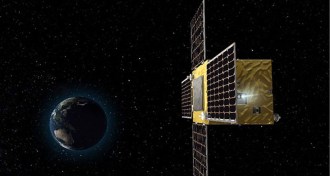 Astronomy
AstronomyJapanese satellite stalls in space and won’t reach its asteroids
Because of an engine failure, the Japanese Space Agency’s PROCYON spacecraft won’t make it to its target binary asteroid.
-
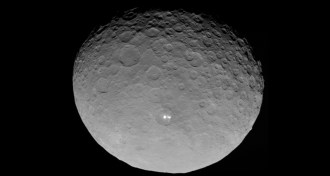 Planetary Science
Planetary ScienceBright spots on Ceres may be made of smaller patches of ice
The Dawn spacecraft took a closer look at bright patches and craters on the dwarf planet Ceres.
-
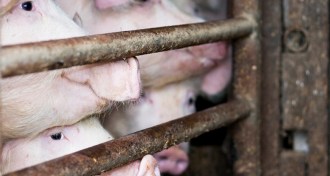 Microbes
MicrobesPig farm workers at greater risk for drug-resistant staph
Pig farm workers are six times as likely to carry multidrug-resistant staph than workers who have no contact with pigs.
By Beth Mole -
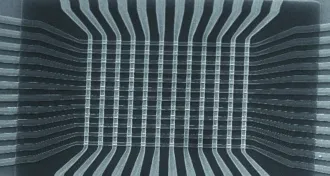 Computing
ComputingResistors that remember help circuits learn
Electronic components called memristors have enabled a simple computing circuit to learn to perform a task from experience.
By Andrew Grant -
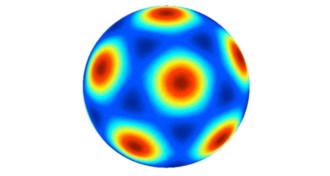 Neuroscience
NeuroscienceBrain’s grid cells could navigate a curvy world
If we ever need to flee a dying Earth on curved space islands — as humanity was forced to do in 'Interstellar' — our brains will adapt with ease, a new mathematical analysis suggests.
-
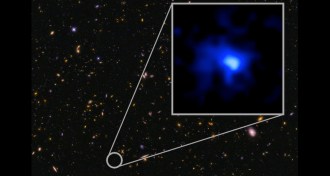 Astronomy
AstronomyAmorphous space blob takes title for most distant galaxy
The new record holder for the most distant galaxy is a blob of 8 billion stars whose light took more than 13 billion years to reach Earth.
-
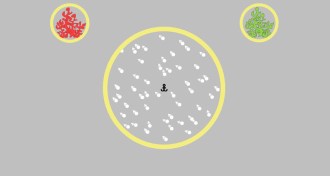 Neuroscience
NeuroscienceChildren with autism excel at motion detection test
Children with autism outperform children without the disorder on a test that requires averaging the movements of lots of dots.
-
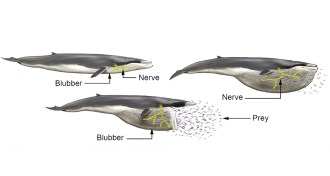 Animals
AnimalsStretchy nerves help some big whales open wide
Blue whales and their closest relatives have stretchy nerves near their mouths so they can open wide and swallow a lot of prey.
-
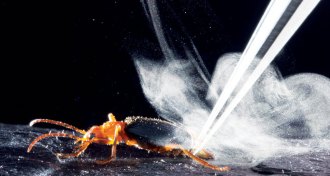 Animals
AnimalsBeetle’s toxic, explosive vapor explained
From a two-chambered gland in their rears, bombardier beetles unleash a toxic, blazing hot spray to defend themselves.
By Beth Mole -
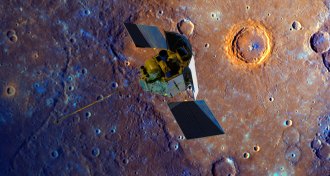 Planetary Science
Planetary ScienceMESSENGER mission ends with crash landing on Mercury
The MESSENGER mission to Mercury came to a spectacular end as the probe crashed into the planet’s surface.
-
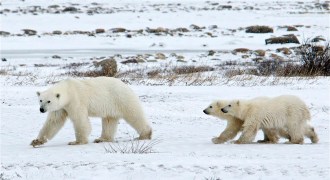 Animals
AnimalsClimate change revs up extinction risks
One in six species on the planet may face extinction if the global temperatures continue to rise.
By Beth Mole -
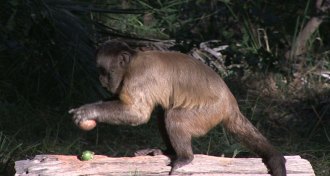 Animals
AnimalsRock-wielding monkeys make adjustments when cracking nuts
Videos show that monkeys carefully pound open nuts to avoid smashing kernels inside.
By Bruce Bower